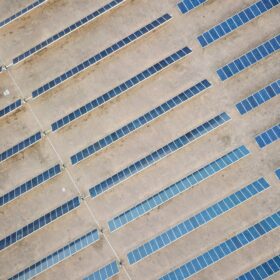South Korea's Solar Future: A Bright and Cost-Effective Path Ahead
Key Ideas
- Solar energy is projected to become the most cost-competitive energy source in South Korea by the early to mid-2030s.
- Renewable energy, particularly solar and offshore wind, is anticipated to experience significant cost declines of 28% to 41% compared to 2023 levels by the mid-2030s.
- By 2050, renewable costs are expected to decrease by 38% to 56% relative to 2023 levels, making solar the most cost-competitive option with an LCOE of $28/MWh to $36/MWh.
- Investments in grid flexibility, green hydrogen production, and advanced storage technologies are recommended to support the development of a resilient and adaptable energy system in South Korea.
A research team from Lawrence Berkeley National Laboratory forecasts that solar energy will emerge as the most cost-competitive energy source in South Korea between 2030 and 2035. Their study, 'Assessing the Levelized Cost of Energy in South Korea,' analyzes LCOE trends for various technologies in the country from 2030 to 2050. While renewables are already competitive in many nations, South Korea's renewable LCOE still surpasses that of fossil fuels and nuclear energy. The research indicates that renewables, specifically solar and offshore wind, will witness significant cost reductions by the mid-2030s due to decreased upfront infrastructure expenses and grid connection costs. Conversely, nuclear LCOE is expected to rise by 15%, while coal and natural gas costs are forecasted to decrease slightly and by 46%, respectively. Large-scale solar projects are anticipated to lead the cost-competitiveness race by 2030. By 2050, renewable costs are set to decrease by 38% to 56%, with solar projected as the most competitive energy source. The authors suggest that prioritizing renewables, enhancing carbon pricing mechanisms, and supporting green hydrogen production could bolster South Korea's transition to a lower-emissions power system, promoting energy security and economic stability. Notably, the country's solar capacity surpassed 28 GW in 2024, showcasing its commitment to renewable energy expansion.
Topics
Utilities
Renewable Energy
Energy Security
Energy Transition
Research Findings
Sustainable Development
Electricity Generation
Cost Competitiveness
Carbon Pricing
Latest News
